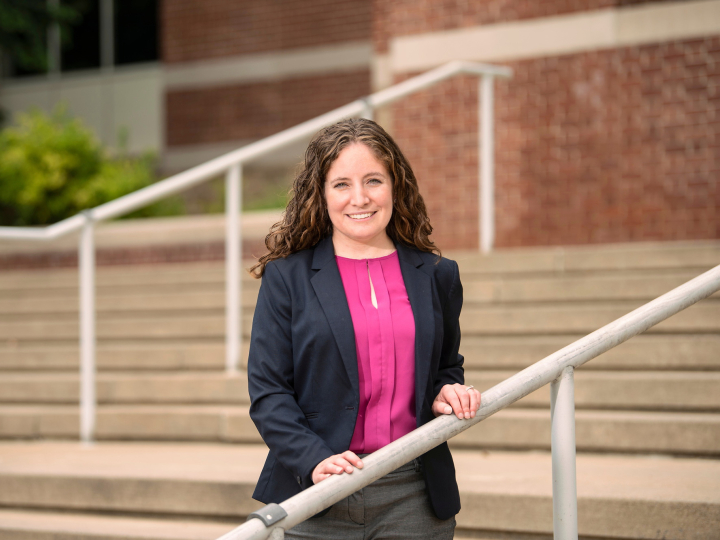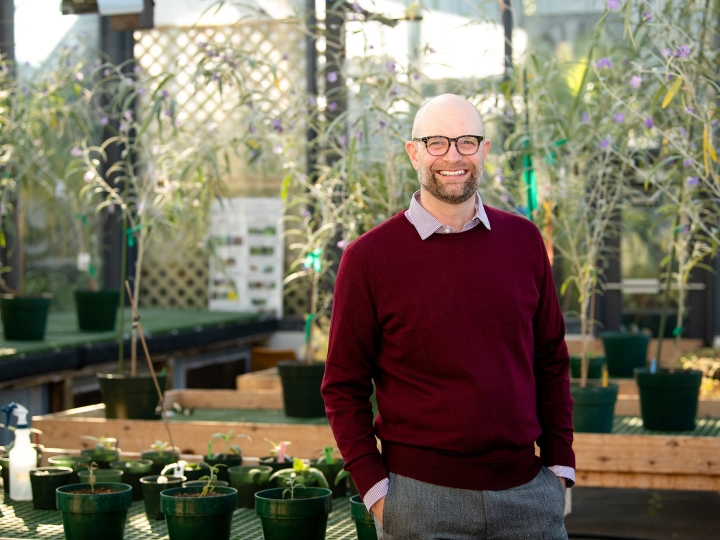Read-Alouds Inform Learning
August 17, 2015
The energy grew in the community space at Barnes & Noble at Bucknell as children and their parents arrived for a biweekly read-aloud. Fourteen three- to six-year-olds took their places on pillows and in small chairs in anticipation. Then, Professor Lori Smolleck, chair, Department of Education, and Helen Vu '16 joined them.
"Today, we're going to talk about shapes," Smolleck said. "What are some shapes that you know?"
"A heart!" said a girl, who was then invited to come up and draw it.
"A square!"
"A triangle!"
"A circle!"
When the children exhausted the shapes they could remember, Smolleck added some others — an octagon and a hexagon — while she held up examples and carefully led the group in counting each side, comparing similarities and differences among all of the shapes.
At first glance, this may seem to be a simple exercise, but there's extensive planning behind it. Smolleck and Vu are working on an education research project to better understand how read-alouds contribute to learning. Each lesson builds on what the children already know and prepares them for what's next, be it pre-school or kindergarten. The lessons are recorded to collect data for analysis.
This lesson was based on the book Color Zoo by Lois Ehlert, which was a tool for Smolleck and Vu to help the children learn mathematical concepts and early literacy comprehension strategies. "By the end of this lesson, our goal is to have them recognize shapes, differentiate between shapes and create their own animal or scene out of them so they can see how shapes come together to make something larger," said Smolleck. "It allows them to practice understanding mathematical concepts and also to use fine motor skills and exercise creative thought."
After Vu read the book aloud, stopping to ask questions about shapes, the children moved to a table full of paper and pre-cut shapes, which they used to make their own creations — a cat, a snake, a dolphin, a tiger and a snowman, among others. To end the read-aloud, they shared their finished products and discussed the shapes they used to make their animal or object.
After each read-aloud Smolleck and Vu transcribe the recording of the lesson to better understand how the questions engaged the children. "Many of our research questions revolve around how modeling metacognitive strategies impacts reading comprehension, as well as the ability to summarize and draw evidence from a book to describe the activities they do," said Smolleck.
This type of research informs the field of education as well, helping teachers reflect on their work to better reach learning outcomes and expand their awareness of what they do and say in the classroom, which can affect students' knowledge and attitudes.
"Conducting research of this nature is an invaluable experience, which will greatly impact Helen's future as a graduate student and educator," said Smolleck. "She's gaining familiarity with current educational reform and research in early childhood and literacy education, as well as other content areas such as science, social studies and mathematics education. This may impact her choice to employ more reform-oriented methods of teaching that are balanced in relation to the integration of content areas. I also think it will help Helen reflect on her own teaching philosophies and make her implicit beliefs about teaching and instruction explicit as she continues to examine her teaching strategies and develop as an educator."
Vu, who pursued her own funding to participate in summer research, is passionate about the project and will keep the read-alouds going after the summer ends. "Intentional, structured learning experiences over the summer help young learners prepare for the upcoming school year," she said. "The students have practiced collaborative learning while expanding their curiosity. At the same time, I've practiced my teaching skills and become more confident in my teaching." This fall, Vu and Smolleck plan to submit their findings for publication and present their research at a professional conference.

